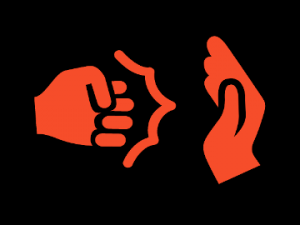Mojca Frelih, MA
Researcher
The supporting role of management is also very important, so that employees can arrange and coordinate all spheres of life. At best, the leader himself/herself is a role model who practices this; but even if not, to at least say out loud that this is allowed in this work environment and that because of this, if you ask for something like this, that it is not accepted as it makes you a bad worker.
– Mojca Frelih on coordinating work and caring responsibilities
Mojca Frelih (MA in Sociology, Faculty of Social Sciences, University of Ljubljana, Slovenia) is a researcher within various (inter)national projects at the Peace Institute since 2003. Her research fields are: sociological phenomena with an emphasis on the feminist theory, gender mainstreaming, equality of gender, equal opportunities and gender relations, (anti)discrimination, migration, labour market, reconciliation of work and family life balance, contemporary citizenship etc. She was a leader of many workshops, she conducted many interviews and performed other research tasks within different international research projects. From 2003-2012 she was a coordinator of the East East Beyond Borders Program (Open Society Foundations) within which she gained a lot of experience with organization, coordination and financial management. She gained more financial and managing experience when she replaced a managing director of the Peace Institute (from June 2007 to June 2008 and then from November 2009 to December 2010).
Featured project
-

Engaged in Equality – Challenging masculinities and engaging adolescent boys to end gender-based violence
The project addresses the prevention of gender-based violence (GBV) by addressing hegemonic masculinities and the engagement of men and boys in gender equality.
Projects
- FemQueer: Common strategies for gender equality
- Equality of gender rules: Creating equal society for all
- Engaged in Equality – Challenging masculinities and engaging adolescent boys to end gender-based violence
- Early Care and the Role of Men (ECAROM)
- Voices of immigrant women
- Occupational risks in sex work at the intersections of policy framework and social stigma (ORIS)
- Action Dad
- Men in Care. Workplace support for caring masculinities (MiC)
- Political and Media Populism: “Refugee crisis” in Slovenia and Austria
- Play It for Change – raising awareness and empowerment of girls and boys for the prevention of gender based violence through audio – visual media and music (PfC)
- European Minimum Income Network 2 (EMIN2)
- Boys in Care – Strengthening boys to pursue care occupations (BiC)
- Masculinities, equality, care practices – MESP
- The Winning Jumps of Some Employed Fathers
- Workshops on hate speech, media and migration
- Comparing Croatian and Slovenian Prostitution Regimes
- MEET, Media Education for Equity and Tolerance
- GEAR: Global Education and Active Response for the Protection of Human Rights, Inclusion and Democratic Values in Intercultural Societies
- Crimmigration between Human Rights and Surveillance
- Gender differentiation in media industry
- Communication Practices in the Context of Social Uprising and Requests for Public Accountability
- Fathers and Employers in Action – ODA
- Responding to Hate Speech – Activation of an Independent Conjunctive Body (ACT)
- Care Work Between Individualization, Globalization and Socialization
- Gender and the Media
- Effective Activism in Slovenia – A Bilateral Exchange of Croatian and Slovenian Activists
- The Voice of Research Administrators – Building a Network of Administrative Excellence
- Hate Speech and Populist Othering in Europe Through the Racism, Age, Gender Looking Glass – RAGE
- Rights on the Move – Rainbow Families in Europe
- E-Engagement Against Violence
- Prospects for Desegmentation of Labour market
- Study Visit of Macedonian Editors in Ljubljana
- Comparing Media Reforms
- The Power of Alternative Media: Experiences from South-Eastern Europe
- Civil Society: Substance or Substitute
- Homophobia in Schools in Eastern Europe
- Questioning Transitional Dynamics in Re-defining Cultural Identities in South Eastern Europe (EE conference)
- SIAPREM – Support for Intersectional Approach in Antidiscrimination Programs for Roma, Migrants and Elderly
- The Role of Non-Governmental Organisations and Volunteers in Protection of Children’s Rights and Human Rights
- Changing Social Organization of Care and its Implications for Social Politics
- LGBT – Families: The New Minority?
- A Long Way Home – Media and Political Discourses on the EU Integration of the »Western Balkans«
- Developing Media Criticism Capacity in Mongolia
- Migrant labour: Contested integration, prospects for citizenship
- PRIME – Anti-Discrimination Training for Media and Equality
- GemTrEx – Professionalizing Gender Trainers & Experts in Adult Education
- Development Partnership SIPA – System of Domestic Help (EQUAL)
- Gender Meets Reality: Exchange of Experiences, Methods and Strategies for Gender Mainstreaming and Gender Trainings in Different Policy Fields
- International seminar: Participation Opportunities: Perspectives for Inclusion of Marginalized Groups
- MAGEEQ: Policy Frames and Implementation Problems: the Case of Gender Mainstreaming
- Conflict Resolution in Community
- Conflict Resolution in the Community, REKOS Group
Featured publication
-

Article Empowerment through Migration: Narratives of Successful Migrant Women’s Integration in Slovenia
Drawing on new empirical data comprising migrant women’s narratives and their voices assembled in an online survey, in this paper we argue that migration should also be viewed as...
Publications
- Article Empowerment through Migration: Narratives of Successful Migrant Women’s Integration in Slovenia
- Collection of scientific papers ‘Social Inequality and Politics’
- Teorija in praksa: Special thematic cluster Masculinities and care
- Criminalization of migration, Thematic cluster in Dve domovini / Two Homelands
- Book / Transformations of Fatherhood: Men between Parenthood and Work
- Aricles on Populism, Media and Education
- Racism: A Divided World, thematic issue of the ČKZ
- Contemporary Citizenship: The Politics of Exclusion and Inclusion II.
